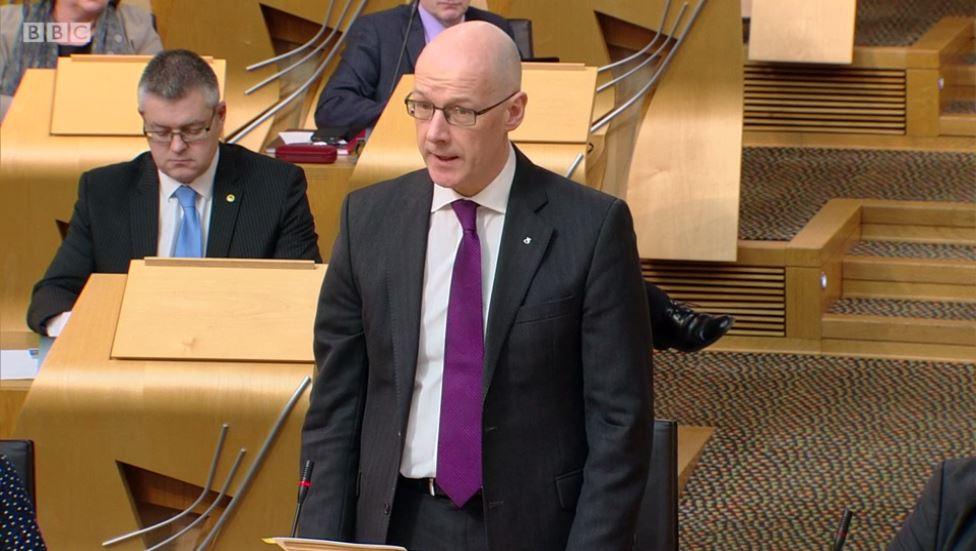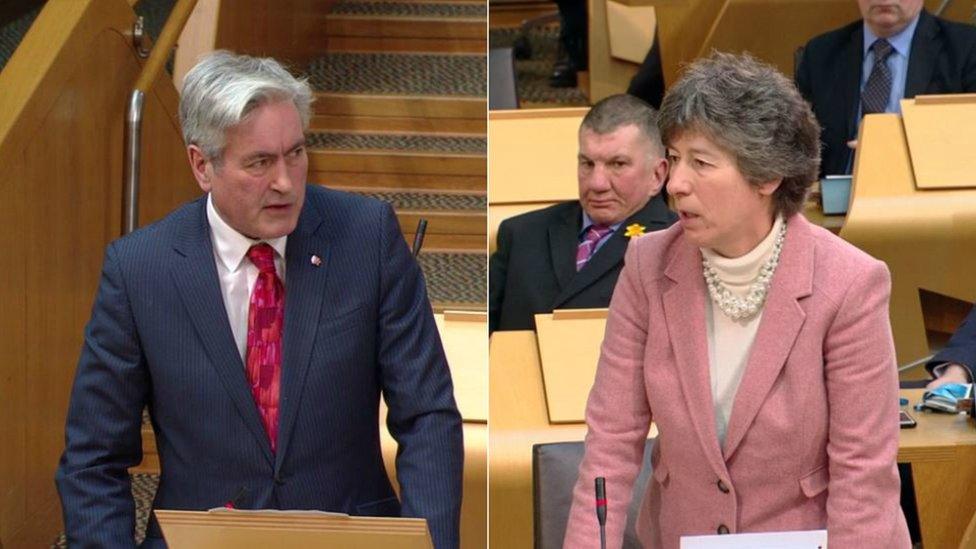Further delay for Named Person scheme
- Published

Every child in Scotland will have a "named person" to ensure their wellbeing when the act comes into force
The Scottish government is to bring forward fresh legislation in a bid to get its controversial Named Person scheme up and running in 2018.
The system would appoint a named person - usually a teacher or health visitor - to ensure the wellbeing of every child.
Judges at the UK's highest court ruled against the scheme in July 2016, citing concerns over information sharing.
The government initially hoped the law could be amended in time to be implemented by August of this year.
The Supreme Court judges had ruled that some aspects of the Children and Young People (Scotland) Act 2014 were incompatible with the rights to privacy and a family life under the European Convention on Human Rights.
However, the court said the aim of named person - which will apply to everyone under the age of 18 in Scotland - was legitimate.
Education Secretary John Swinney told MSPs on Tuesday that he remained "absolutely committed" to introducing named person.
And he said the Scottish government would now bring forward legislation to amend the information sharing aspects of the scheme.
He said the proposed new laws would be brought before Holyrood before the end of June - allowing for a timetable to be drawn up to roll out the scheme across Scotland next year.

John Swinney told MSPs he was "absolutely committed" to implementing the Named Person scheme
Mr Swinney said he had consulted with hundreds of young people and their parents over proposed changes, and remained "absolutely committed" to the service as a way to support families.
The education secretary added: "Last year the Supreme Court ruled definitively that the intention of providing a Named Person for every child to promote and safeguard their wellbeing was 'unquestionably legitimate and benign'.
"However, their judgment required us to change the provisions relating to information sharing. This has presented us with the opportunity to improve the service and reassure parents and practitioners and the wider public that it will work with and for families.
"Young people and families should have confidence that information will be shared only where this can be done in a manner which respects their rights under data protection law, human rights and the law of confidentiality.
"The approach I have set out today seeks to bring consistency, clarity and coherence to the practice of sharing information about children and young people's wellbeing across Scotland."

Labour's Iain Gray and Tory Liz Smith raised questions about the plans
Scottish Conservative education spokeswoman Liz Smith said that every opinion poll had suggested the service was not wanted, asking why the government had decided not to abolish it.
Mr Swinney replied that the government had been elected on its policy commitments, and said Holyrood had previously voted in favour of a Named Person system so he was "duty-bound" to deliver one.
Labour's Iain Gray said Mr Swinney had "done nothing to restore much-needed trust in the Named Person scheme", asking if 16 and 17-year-olds could be exempted from it.
Mr Swinney said this was not an easy issue to resolve, noting that the UN's Convention on the Rights of the Child included young people up to the age of 18.
However, he added that it would be up to parliament to consider these questions during scrutiny of the new legislation.
Green MSP Ross Greer said he was "reassured" by the amount of consultation carried out, while Lib Dem Tavish Scott said concerns about the potential "invasion of parental and family privacy" should be addressed.
Legislative competence
The judges said in July 2016 that specific proposals about information-sharing were "not within the legislative competence of the Scottish Parliament".
They said the legislation made it "perfectly possible" that confidential information about a young person could be disclosed to a "wide range of public authorities without either the child or young person or her parents being aware".
The appeal was brought to the Supreme Court by the No to Named Persons (NO2NP), external coalition, which includes the Christian Institute, Care (Christian Action Research and Education), Tyme Trust and the Family Education Trust.
No2NP spokesman Simon Calvert said Mr Swinney's announcement had signalled a "major climbdown by the Scottish government" and a "major victory" for campaigners.
He said: "Mr Swinney says he wants to assure families that their rights are 'fully respected'. Today's announcement is a start.
"But the government has spent years training practitioners in the public and private sector to share data at a much lower threshold than 'risk of harm'. This has created a reckless culture of data-sharing in practice, even though the Named Person law never came into effect."
- Published28 July 2016

- Published7 March 2017
